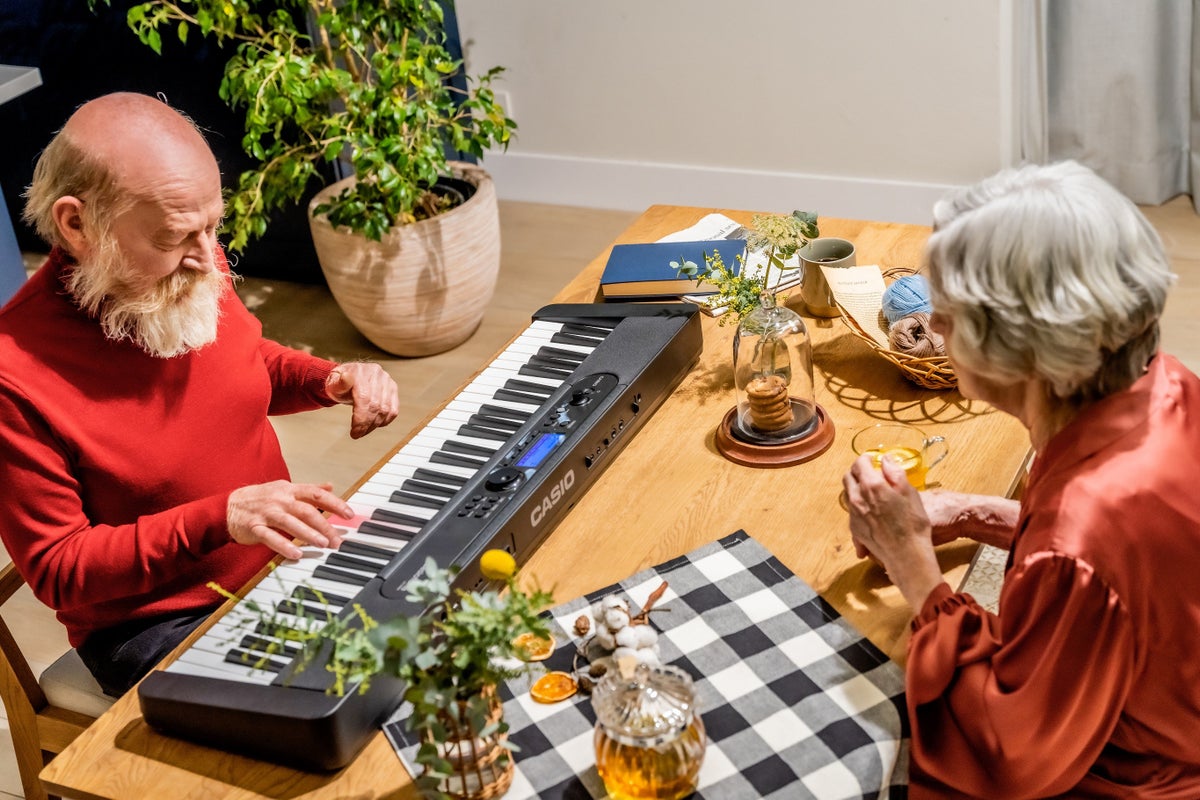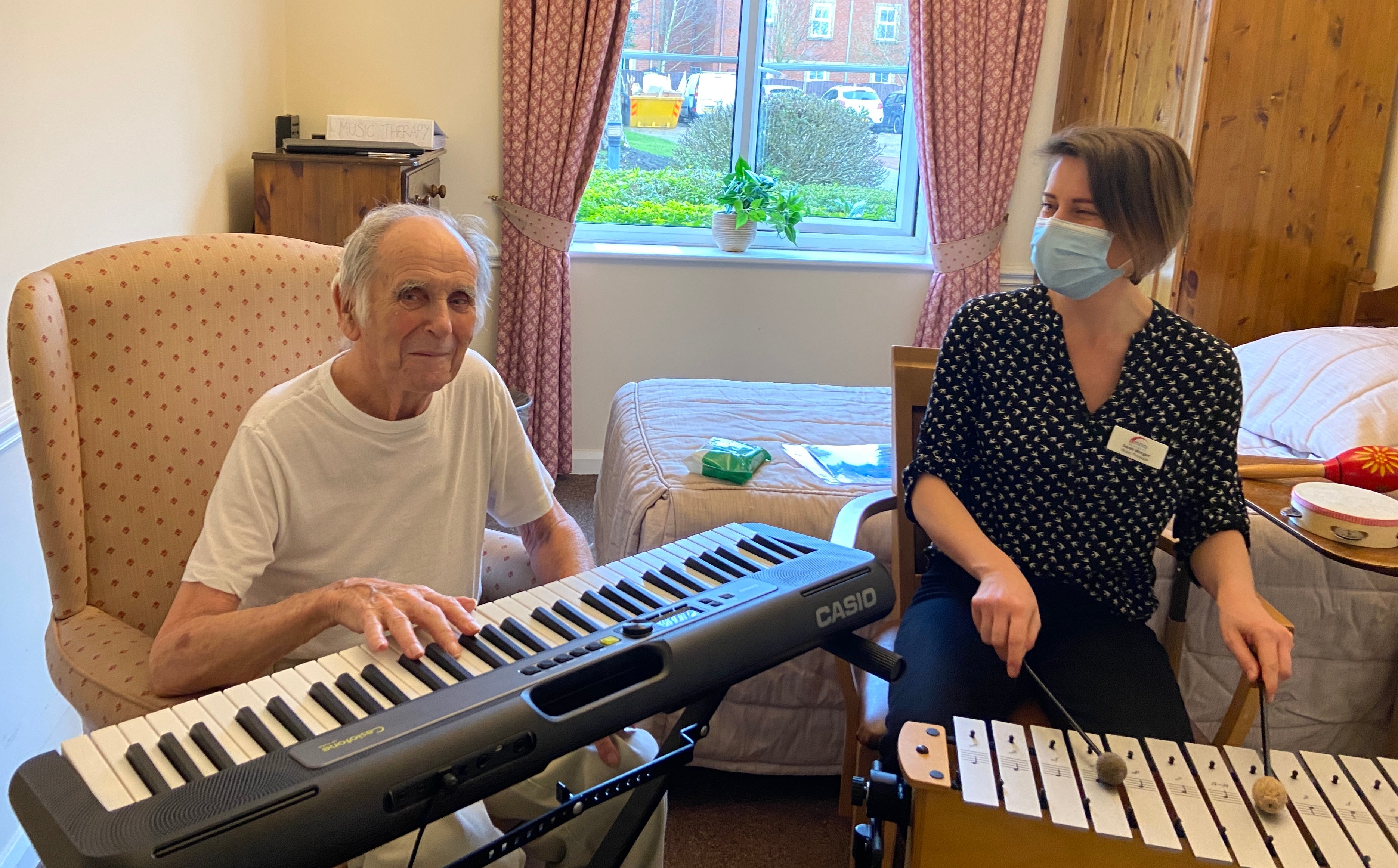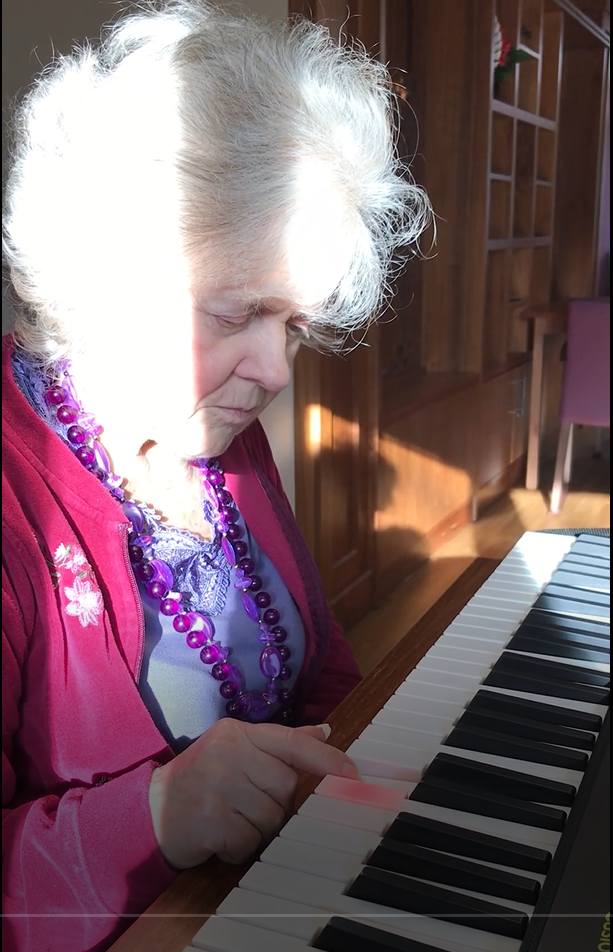
Keyboards have helped to strike a memory chord and light up dementia patients’ faces with smiles.
Casio gave lighting key keyboards to some of care provider Methodist Homes’ (MHA) dementia patients over a six-month period to be used in music therapy sessions.
The keyboards – which use lights to help users find the correct notes – were used by over 100 people and were found to increase happiness and ignite memories.

Research from Casio, which was in partnership with Music for Dementia and MHA, found that 79% of music therapists working in care homes saw an improvement in memory recall among patients while 95% of residents said that they felt “elated” after completing a song.
Jill, an 82-year-old resident who has moderate dementia and played the piano as a child, went from recognising and whistling a song which was part of the instrument’s ‘song’ mode to playing parts of a Beethoven classic, Moonlight Sonata.

The song held a special place in Jill’s heart because her parents enjoyed it and despite not being able to play all the notes, she was able to recognise and play the main melody.
Clare Barone, the music therapy lead at MHA, said that she hopes the project called Light Up My Life will have a knock-on effect, whereby more care providers “embrace” music to “give more people the best life possible,” during World Alzheimer’s Month.
We're passionate about the role of music in care and hopeful that the research and learnings we are revealing today can be used as a springboard to accelerate and improve the accessibility of music and music therapy for those living with dementia and those who care for them, across the nation and worldwide.— Neil Evans, Casio
Neil Evans, head of Casio Electronic Musical Instruments, added: “We are pleased to announce the results of this important research project and proud to see how our keyboards have played a vital role in providing access to music therapy for care home residents living with dementia.
“We’re passionate about the role of music in care and hopeful that the research and learnings we are revealing today can be used as a springboard to accelerate and improve the accessibility of music and music therapy for those living with dementia and those who care for them, across the nation and worldwide.







